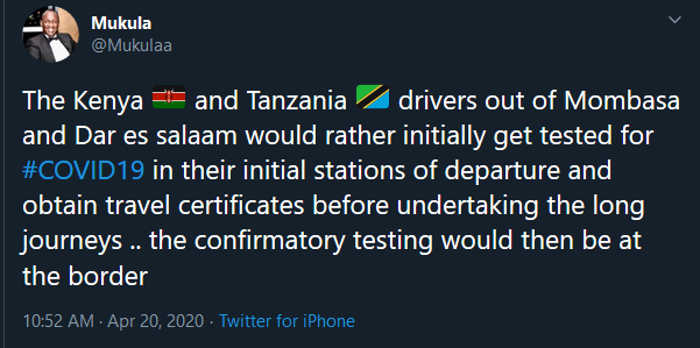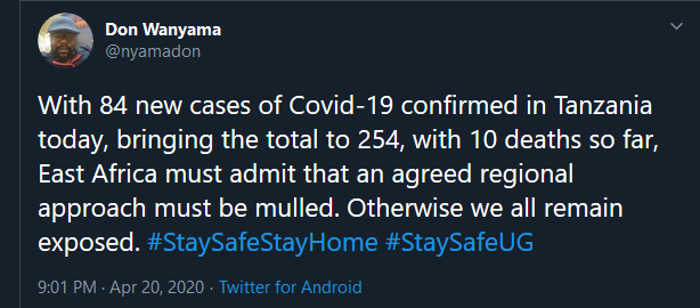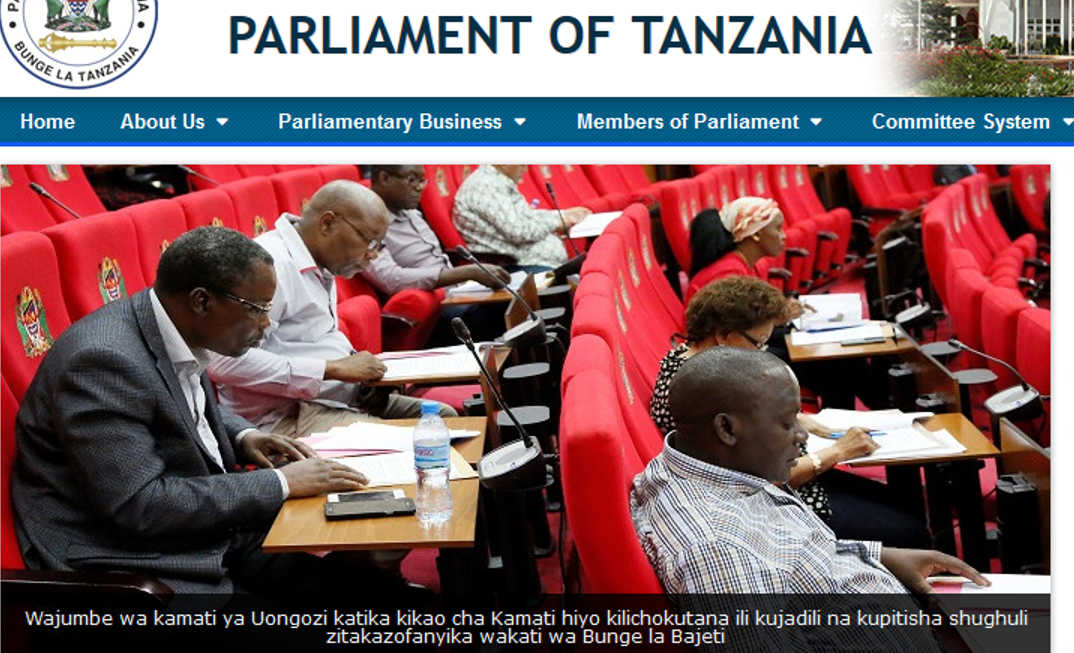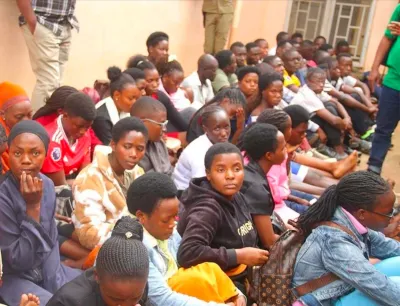

A screen grab of Daily Nation’s report on the government’s lax implementation of social distancing measures recommended by WHO to COVID-19
The reluctance by Tanzania and Kenya governments to adopt aggressive WHO’s guidelines by each country to institute strong measures to control the deadly COVID-19 pandemic has raised alarm about the overall health of the people of the East African region.
The sense of alarm stems from the fact that the region’s economies are greatly integrated meaning that movement of persons and goods across borders is almost unstoppable in the medium to long term, and yet sister trading countries continue to pursue different strategies in the control of the deadly disease.

Capt. Mike Mukula’s post captures the mood in Uganda: The increase in the number of truck drivers from Kenya and Tanzania testing positive to COVID-19 means Uganda cannot celebrate when their neighbour’s house is on fire

Don Wanyama, President Museveni’s Senior Press Secretary on the situation of COVID-19 in Tanzania and its implications for the health of Ugandans.
For example, whereas Uganda and Rwanda have largely succeeded in controlling the spread of the disease through strict nation-wide lock-down measures, Tanzania and Kenya continue to witness a sharp rise in new cases, which can be attributed to the lax measures that go against the advice of the World Health Organisation (WHO) to Test, Track and Treat all affected persons in order to bring the disease under control.
Although Uganda’s almost total shutdown of her economy has brought suffering and pain to many, the country’s COVID-19 record is the envy of many in the region. Uganda now boasts of a sloping curve (meaning that it has more cases of patients being discharged than new ones being admitted).
The result is that Uganda now has more recoveries (38 COVID-19 patients so far discharged) than the ones who are still being treated (18), according to WHO statistics. Uganda has not recorded a single death, nor has Rwanda.
The situation is a complete opposite in Tanzania and not any pleasant either in Kenya.
Over the past three weeks, Tanzania has seen a spike in cases from just 19 cases to 254 with 10 deaths and just 11 recoveries. And yet, by the same date, Uganda had 44 confirmed cases of the COVID-19.
Kenya has seen positive progression of COVID-19 as well. By March 31, 2020, Kenya had recorded 59 cases of persons with COVID-19. This figure has risen sharply to now 281 cases with 14 deaths and 69 recoveries.
Rwanda on the other hand, who imposed strict measures early, has managed to bring the pandemic under control with 147 cases, no death and 80 recoveries. This means that the country now has just 69 active cases of people with the virus.
The news of a Member of Parliament in Tanzania testing positive has raised alarm among some members of the Tanzanian community. But the Speaker of Tanzania’s Parliament Job Ndugai turned down calls for suspending sessions or instituting social distancing measures seen in Uganda.

Whereas Uganda’s Parliament has adopted social distancing measures, Debates in Tanzania’s Parliament continue to be business as usual as seen below

President John Pombe Magufuli has also rejected calls for more strict curbs on people’s movements and social gatherings.
Also reports have emerged from Kenya’s media indicating that the government’s weak enforcement of social-distancing measures are threatening the further spread of the disease, as illustrated by today’s Nation media report.
The Report shows that the government has stopped at reminding people that the power to stop the disease lies in their hands. This lax attitude has only encouraged people to congregate and throw caution to the wind, in the absence of active enforcement.
Another Report published early this month indicated that 75 percent of Kenyans preferred stricter measures, a sign that Kenyans do not approve of the government’s lax steps.
In view of the health risk of continuing presence of the disease in the region, some Ugandans have come up with proposals such as testing truck drivers at their points of destinations, so that further tests at the border are merely confirmatory.
Others have proposed that the region under its umbrella East African Community develops similar policies.
But the fractures in relations between sister countries, arising from hangover political clashes, prevents movement on this front.













Henry Lutaaya
Leave a Comment
Your email address will not be published.